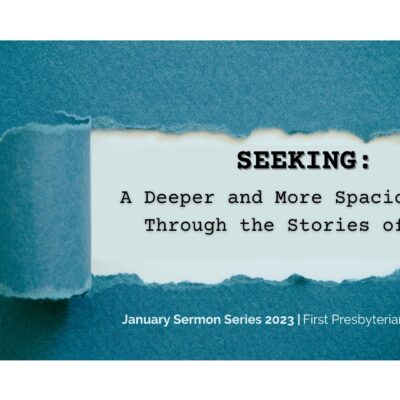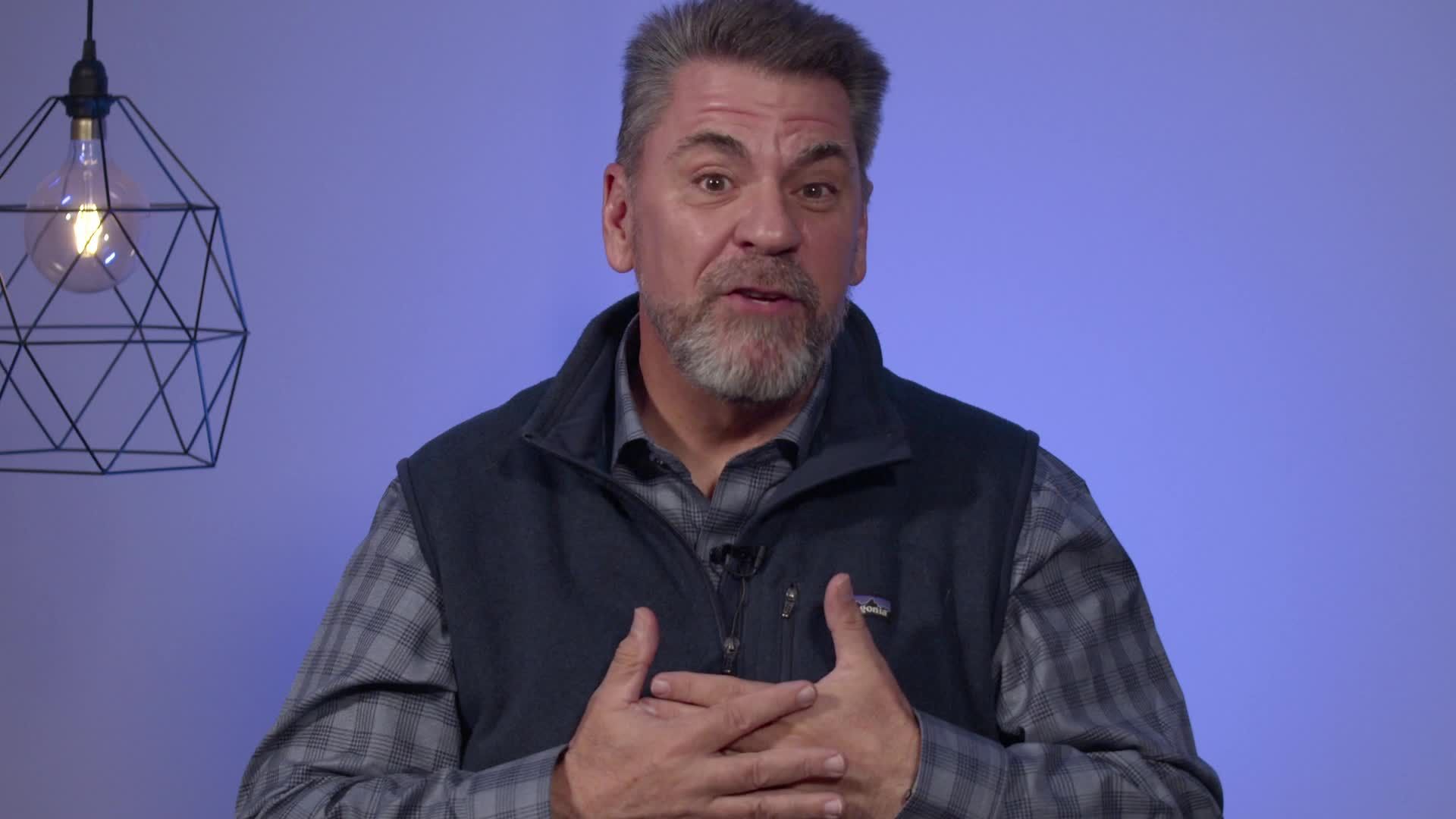Feb 19th: In the Eyes of Another – Parable of the Good Samaritan, with Rev. Dr. Steven Koski.
A Part of the Series:
Rev. Dr. Steven Koski
Other Articles in:
Feb 19th: In the Eyes of Another – Parable of the Good Samaritan, with Rev. Dr. Steven Koski.
I’d like to begin with this prayer. Just as Jesus startled and challenged people around him with his all-encompassing, unconditional, life changing love startle us, oh God. Challenge and change us today with that, with that same love. Amen.
So what if Jesus meant what he said? What he said in the Great commandment, when he said, there’s nothing more important than loving God, and you show your love for God by loving your neighbor as yourself. I love the highway sign that says, you know, that whole love your neighbor thing? I meant that sign God. But who exactly is our neighbor? Now, that’s a question that seems to be at the very heart of many of the tensions and conflicts we’re experiencing right now in our divided country when the concept of we the people has become us versus them.
So one day, an expert in the law, in the law of Moses, asked Jesus, what must I do to inherit eternal life? Now, Jews at the time did not think about eternal life as something that happens after you die. It’s about life. Now, the expert in the law was asking the question I think we all ask, how can I live my life now? Now, in the present?
How can I live my life with meaning, purpose, fullness? Now, he was an expert in the law. So Jesus asked, what does the law say? Now, the man knew the answer to his own question, because it was right there, right there in the torah, the law of Moses. You shall love the Lord your God with all your earth, soul, strength, and mind from the Book of deuteronomy.
And love your neighbor as yourself from the Book of leviticus. That’s it. Jesus says, do that, and you will live fully, completely, authentically joyfully. Then the expert in the law asks the question that stares us in the face every morning. We turn on the news, or when we read the newspaper or go to the grocery store or listen to the conversations around us.
Who is my neighbor now? Jesus. Jesus being Jesus, he doesn’t answer the question. Instead, he tells a story, a parable. Now, I mentioned the word parable literally means to throw alongside.
In order to catch the truth in the story, we have to be willing to move, to stretch. Jesus would toss these stories alongside, inviting a shift in thinking, a shift in values, inviting a shift in the way we see ourselves and others. Jesus responded to the lorrier’s question by telling the story, the familiar story of the Good samaritan. Now, we assume it’s a pretty straightforward story about the importance of being a Good samaritan, expressing kindness to those in need. The problem is, Jesus never told straightforward stories.
Jesus was always challenging us to stretch. If we miss the context, we miss Jesus. This very famous feel good story about a Good samaritan would have been shocking, radical, disturbing to those who were listening to Jesus as the saying goes, jesus came to comfort the afflicted and to afflict the comfortable. Now, we like the comfort part, but afflict the comfortable? Yeah, not so much.
I’m guessing you prefer nice sermons that make you feel good instead of sermons that stretch you out of your comfort zone. We forget that after the first sermon that Jesus preached in the temple in the fourth chapter of Luke, they wanted to throw Jesus off a cliff. So Jesus was asked, who is my neighbor? And he told a story about a good samaritan. And before we read the story, we need to know that in the context of those listening to Jesus, there was no such thing as a Good samaritan.
I mean, samaritans were the hated, despised. Other samaria was a separate country north of judea. And during Jesus day, the samaritans had a religion that was similar to the orthodox judaism of judaea, but with enough differences to make Jews and samaritans enemies. They hated each other. And it was a toxic kind of hate.
The kind of contempt and hate that is fueled by tribalism racism, religion. Catholic, protestant for centuries in Northern Ireland sunni and shia, Israeli Jews, Palestinian Muslims and, you might say, conservatives and liberals in our own divided country where we no longer simply disagree with each other but we hold in contempt those with whom we disagree. So for those listening to Jesus, samaritans were the enemy, hated, held in contempt. And that gives some background to how shocking, how radical it would have been for Jesus to tell a story using the hated samaritan as the hero and the one to emulate. You could say Jesus was trying to afflict the comfortable.
So as I read the story, as we read the story that has become so familiar, consider how your own definitions of who is your neighbor and what it means to be a good neighbor are being challenged in this story. So the lawyer asks, who is my neighbor? And in reply, Jesus tells this story. A man was going down from Jerusalem to jericho when he was attacked by robbers. They stripped him of his clothes, beat him and went away, leaving him half dead.
A priest happened to be going down the same road and when he saw the man, he passed by on the other side. So too a levite. When he came to the place and saw the man by the side of the road, he passed by on the other side.
Now, the priest and the levite, they get such a bad rep in the story. Maybe they’re not such bad people, but like the rest of us, maybe they’re just preoccupied, busy, stressed with a 1001 other things demanding our attention. Every single day I get distracted by the things I think are urgent and I miss several times a day stopping to attend to what is most important.
What’s interesting is that those listening to Jesus tell the story, they would not have expected the priest and the levite to stop. They would not have expected them to stop and help the man who had been beaten. They wouldn’t have judged them as being without compassion, of being hypocrites. They would actually have expected them to keep going because the priest serves in the temple and the levite assists the priest. And to serve in the temple, they would have to remain in a state of ritual purity.
And to come in contact with this wounded man would have made them ritually religiously unclean, unfit for service in the temple. And it would have taken a week of purification rituals to become clean again. So those listening to Jesus tell the story, they actually wouldn’t have had a problem with the story so far. They wouldn’t have had a problem with the priest and the levite keeping going. But then Jesus continued and he said, but a samaritan, as he traveled, came where the man was.
And when he saw him, he had compassion for him. Now, for Jesus to even utter the word samaritan, and worse, to have something good to say about a samaritan would have been outrageous. Those listening wouldn’t have judged the priest and the levite for not stopping to help. So maybe Jesus isn’t comparing their behavior to the samaritan who did stop.
Maybe it wasn’t actually about stopping or not stopping. Maybe there’s something deeper going on here. It said the samaritan saw the man, and it says that he had compassion. The shock and outrage to those listening is that Jesus portrays the samaritan, the enemy, the hated other, in a positive light. He’s inviting his listeners to see the humanity in someone they hold with contempt.
You know, it’s so much easier to judge, to label, to hate people from a distance.
Hate and judgment can’t survive proximity, getting close enough to see the other’s humanity, to see our own shared humanity, to see Christ in those we judge. Remember the story of the student who asked the teacher, how can you tell when night has given way to day? And the teacher responded, when you look into the eyes of another, no matter who they are, and you see a brother or you see a sister, the dawn has arrived. But when you look into the eyes of another and you don’t see a brother or sister, it is still night.
Jesus shocked his listeners with a story where their enemy was the one who saw a brother, probably one of them lying wounded in the ditch, and that he felt his pain.
Jesus was inviting his listeners to look beyond their judgment, to look beyond the labels and see the humanity in their enemy, to see him as their brother.
And then Jesus went on in the story. The samaritan went to him and bandaged his wounds, pouring oil and wine. Then he put the man on his own donkey, brought him to an inn and took care of him. The next day, he took out two daenerys and gave them to the innkeeper. Look after him, he said, and when I return, I will reimburse you for any extra expense you may have.
Now, the samaritan tears pieces of his own clothing into bandages. And don’t miss it. He poured oil and wine onto the wounds. Now, oil and wine were used in the temple.
Could Jesus be saying the priest didn’t know how to use the oil and wine in a way that would please the heart of God? But the samaritan did. The samaritan didn’t just pray for God to have mercy on the man.
The samaritan became the very presence of mercy. Could Jesus be saying, now, this is true worship?
So after telling the story, Jesus asked the lawyer, which of these three do you think was a neighbor to the man who fell into the hands of robbers? The expert in the law said, the one who had mercy on him. Jesus told him, go and do likewise.
Notice the lawyer couldn’t even bring himself to say the word samaritan out loud. I almost get a sense of him grinning his teeth. The one that guy who showed mercy.
Imagine how those listening to Jesus must have felt when Jesus said, go and be like the samaritan.
Who is your neighbor?
The person you hate the most, the person who sets your teeth on itch, the person you’re in conflict with, the person you judge, label, the person you’ve dismissed.
That’s the person you are to love as yourself.
But you didn’t notice. The lawyer asked the lawyer asked, who is my neighbor? And Jesus didn’t really answer the question. Instead, he defined what it looks like to be a neighbor. A neighbor is anyone who needs you, anyone who’s in big trouble, anyone who’s lying in the ditch beside the road, anyone beaten up by life and left half dead.
Even, maybe especially those people you have every right to despise.
We don’t get to choose who our neighbor is.
Our neighbor is someone we are given when we see with the eyes of Christ. And when we see with the eyes of Christ, we will usually be surprised who we are given as our neighbor. You know, there was a man in in the church I served in Adelaide, Australia, named Bill. Bill was a well respected psychiatrist, a deeply religious person. But Bill approached his earth in a what should I say a very legalistic way.
And there was one topic he was obsessed with, and that was and that was trying to convince whoever, whoever would listen, that homosexuality was an abomination to God. Now, Bill was loud and relentless in this message condemning homosexuality, and he would take scripture completely out of context and just use it as a weapon.
As Bill got older, he developed dementia and was in a care facility. Bill used to sing in the choir. He never, never missed a Sunday. He loved to sing and there were two gay men, Jason and Alan, who sang in the choir with Bill. Now, Jason and Alan, they knew in bill’s eyes they were an abomination.
They were the hated other to be feared, hated, condemned, like the samaritan.
Jason and Alan were moved, deeply moved with compassion when they saw Bill decline. And when they saw that he began to suffer with dementia, they took it upon themselves to pick Bill up on Sundays and to bring him to church. And they would sit on either side of him and they would hold up bill’s hymn book so that Bill could sing those familiar hymns that meant so much to him. Even though his mind was in decline, he remembered those hymns and loved to sing with gusto. And every Sunday, Jason and Alan would take Bill back to his care facility.
They’d have lunch with him. And I couldn’t believe it, but they would then spend an hour or so reading the Bible with Bill.
Bill was shown mercy when he needed it the most from the very people he feared and despised.
Such is the shocking, scandalous, unreasonable, unconditional, life changing love of God revealed in Jesus.
Friends, go and do likewise, and you will experience the fullness of life that you are seeking.
May it be so.



